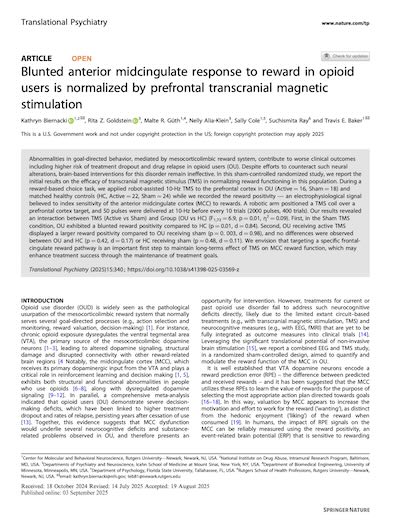Today's article comes from the journal of Translational Psychiatry. The authors are Biernacki et al., from Rutgers University, in New Jersey. For decades, we've known that opioids hijack the brain's reward system, sometimes leaving people unable to find motivation in the things that once brought them joy. What we haven't known is whether that damage can be reversed. That's what this paper is all about. The authors are using robot-assisted transcranial magnetic stimulation to target the reward dysfunction that lies at the heart of opioid addiction.
DOI: 10.1016/j.eswa.2022.117725


You must be an active Journal Club member to access this content. If you're already a member, click the blue button to login. If you're not a member yet, click the sign-up button to get started.
Login to My Account
Sign Up